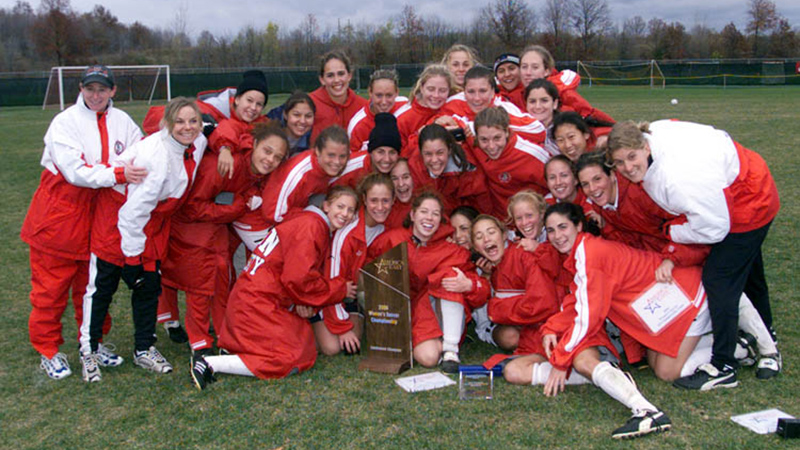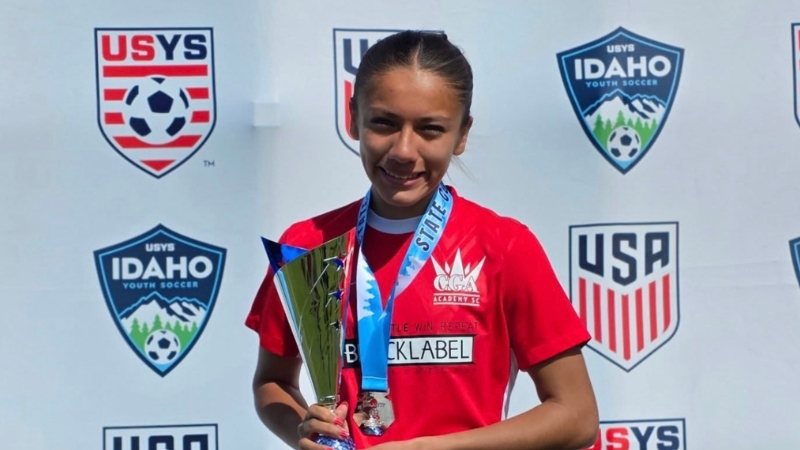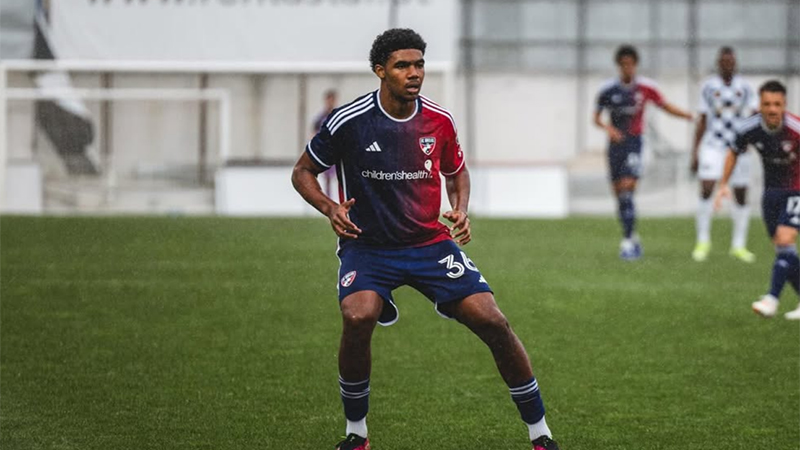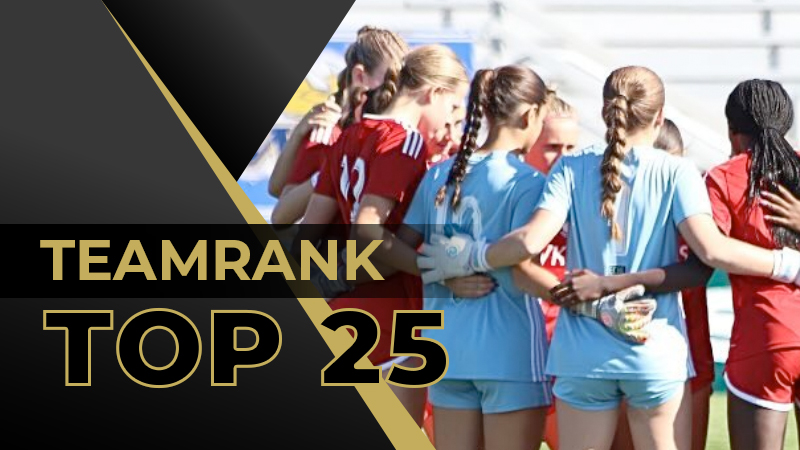Feldman leaves lasting legacy at Boston U
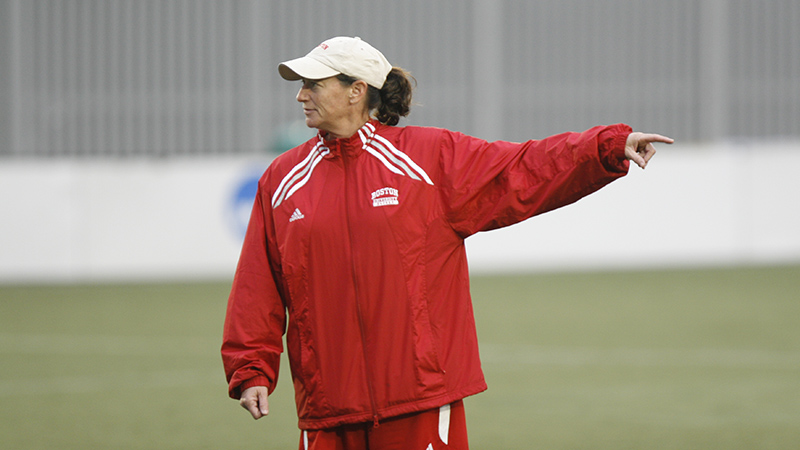
For Nancy Feldman, it all started with a newspaper clipping. It was fall 1994, and her father, an avid reader of the Boston Globe, noticed that Boston University was forming a varsity women’s soccer team.
That team would need a coach. So he urged her to apply.
Feldman left a hopeful message to the university, expressing interest, but asking only for a conversation.
“Hey,” Feldman recalls saying. “When it opens — if it opens — I'd love to chat.”
MORE: Sign up for a Premier Subscription
The position opened at the beginning of the following year, and by April 1, she was the coach of the Terriers' first soccer team.
And now, 27 years later, her tenure is coming to an end. After 14 regular season titles and 13 conference tournament championships, the decorated coach decided to retire at the end of the spring season. At the center of those victories, triumphs and accolades is a coach who served as a mentor to her players, preached excellence in practice, and came to define BU soccer.
“I’m leaving a pretty good gig,” Feldman said. “I’ve loved it, and it’s become a big part of my identity.”
Her players have held her in the highest regard over the years and have stayed in touch since graduating. She’s attended weddings, helped other coaches get into the soccer world and even picked up a player who missed a flight out of Boston. It’s for those moments —those connections — that enabled Feldman to develop such a reputation in the college soccer world.
“Meeting Nancy was a life-changing moment”
Feldman didn’t exactly walk onto a campus devoid of resources. The Terriers had an established club soccer team. The administration gave her field time, a locker room, and the ability to form a non-conference schedule. The basics, then, were very much in place.
But her squad, at least immediately, wasn't up to the standard she wished to set.
They were coachable. Perhaps they were good enough to compete against a handful of teams. Feldman, though, wanted more. So she reached out to high school seniors in the area, invited them to campus, and gave them the same pitch: they could be the start of something special.
“I sat with coach, met her, and heard her ideas about where she wanted to bring the program,” Christine Davis said. “I was in pretty quickly.”
Davis was one of a few Boston-area talents brought in for their inaugural season. Using that exciting group, while also handpicking from the existing club team, Feldman pieced together a squad that went 10-3-2 in a non-conference slate. They won five out of their first six games and closed the campaign with a 3-0 statement win over Hofstra.
She also developed something else: a management style in which she got to know her players and figure out how they worked on the field. For Feldman, that materialized in regular one-on-one meetings with each player, a place where goals were set and constructive criticism was offered.
“Even if you felt like you were doing amazing, you're always sort of feeling like, did I do enough? Because you became invested in the program,” Steph Dreyer said.
Those meetings proved impactful for some squad members, even now. Rebecca Beyer, for example, recalls Feldman consoling her through her parents’ divorce, showing empathy and validating her sadness in a difficult time.
“She basically said, ‘you don't have to be happy all the time’,” Beyer said. To sort of have my unhappiness acknowledged… it was just really meaningful.”
Players have reflected on other lessons learned from those meetings. Right after putting in a seven save performance against Santa Clara, Dreyer was told she wouldn’t be in net when the team faced Stanford. She was miffed but won the starting job back right after — and held it for the rest of the season.
Still, Feldman could be stern. Davis recalls as much. The first semester of her freshman year, she hadn’t performed as well as she wanted in the classroom. When her grades were released, Feldman called her into her office and asked a question.
“She said, ‘Are you someone who does just enough to get by?’” Davis recalled. “And she knew I wasn’t like that on the soccer field.”
That query stuck with Davis, who saw her academic performance improve, and also went from strength-to-strength as a center midfielder.
All the while, the team continued to improve on the pitch. In Feldman’s second season, the Terriers joined the America East conference. It was a difficult league, with matchups against Towson, New Hampshire, Vermont, and perennial winners Hartford College. The team finished under .500 in its first league season.
It was that year, though, that changed things, serving as proof that the program — less than 18 months old — could stick around with established universities. And with the bait of playing conference soccer, the quality of the recruits started to improve, raising the level in training and on matchdays.
“No one worked harder than those gals that came in, and ‘95 and ‘96, and ‘97, and all that,” Feldman said.
The first big result in Feldman’s career was a loss, just a year later. The Terriers fell, 3-2, to a top 25 ranked James Madison team, defeated by a golden goal in extra time.
Although the defeat stung, the significance of being more than a noisy outcast wasn’t lost on the team.
“It was like, okay, yeah, we're the new program, we haven't been around for a while,” Davis said. “But look, we're hanging with these teams.”
"We do not lose conference games, we are at the top”
It was a windy day in Hartford on Nov. 5, 2000. A win would secure the Terriers’ first America East championship — and with it, a chance to play in their first ever NCAA Tournament. Feldman’s squad didn’t have too many fond memories playing in Connecticut, either; Hartford had bounced them from the same competition 12 months prior to the tune of a 2-1 defeat.
But the Terriers started fast, bagging two quick first half goals, before sitting in and daring the Hawks to attack. The home side pulled a goal back after the break, but Boston tagged on two more, clinching the conference tournament with a 4-1 victory.
“2000 was huge. It was proof that the process worked,” Feldman said.
That first league win set a standard of excellence that only grew. Feldman encouraged the team to enjoy the victories but fostered an environment in which the team wanted to continue to succeed.
There was a flip side, though. As the victories racked up, the few losses in between started to sting more.
Still, the team chugged along, winning the America East in 2001. Then, in 2002, things changed. The Terriers endured their first losing season and failed to retain the conference title after back-to-back wins.
After falling short of a three-peat, the team asked Feldman for a change in approach. Prior to that season, the relationship between player and coach had been too transactional, Dreyer said. Feldman knew what made the players tick, which helped them succeed on the pitch. Meanwhile, the squad didn’t feel like they knew their coach well off it.
So, senior members of the squad came to Feldman, asking her to be more open about her life in return.
And Feldman responded to that enthusiastically. Prior to 2002, she seldom talked about her personal life. The season after, though, she was more welcoming, Dreyer said, and started bringing her future wife, Emily to games.
“It was a give and take. It wasn't just you're gonna invest in us, but we're gonna invest in you,” Dreyer said.
That shift led to more cohesion among the squad, a greater team spirit, and a return to success on the pitch. The Terriers rolled off back-to-back conference wins and earned their first ever at-large bid to the NCAA Tournament.
“I'm sure that anyone after me would admit that they feel like that's where coach really became knowing you as the person and the player,” Dreyer said.
“She just totally outcoached the lot of them”
It was 2014, and BU was celebrating 20 years of having Feldman at the helm. Nickerson Field was full of alumni and prominent figures of the coach’s time at the school.
On the pitch, there was little cause for celebration. The Terriers were down 1-0 to a middling Army side after a lethargic first half display.
But Feldman wasn’t angry.
“She gave us a really good halftime speech, motivated us to take a look at ourselves,” Jenna Fisher said.
Then she benched all of the starters to start the second half.
Fisher was bemused, as were her teammates who regularly saw the pitch. But the move worked. After 10 minutes, the starters returned to the field. Within another 10, Fisher banged home an equalizer. And although they couldn’t find a winner, the Terriers dominated the game, and didn’t allow a shot from the 50th minute onwards.
It was the kind of performance Feldman knew the team was capable of. From 2000-2014, BU had won 21 combined regular season and tournament titles. Over that span, she’d been acknowledged as the conference coach of the year 10 times. Nine future professionals had come through the ranks, so had eight All-American talents, and a handful of future assistant coaches.
“I didn't realize it truly at the time, but we were really being coached by one of the best to come out of the NCAA,” Fisher said.
There was more to that success than recruiting and game day tactical setups, though. Feldman explored other methods to give her team an edge, mandating meditation sessions, yoga, and even asking her team to take personality tests in an attempt to understand each individual player more.
“We did a lot of things outside of just soccer,” Brittany Heist said. “Just some things that she just wanted to try and see if it helped the group.”
And help it did. In 2014, USA Today acknowledged BU as the No. 3 program in the nation based on team success and academic achievement. Here was a group that was not only rolling through games, but also developing careers outside of the sport.
Players were encouraged to write for the school newspaper, pursue internships and chase career opportunities. As long as they met — or, ideally, exceeded — expectations in training, Feldman wanted them to blossom.
“Sometimes that can be forgotten, because we are little machines when we're playing. We want to win, we want to compete, we're hungry for what's next,” Heist said. “But at the end of the day, it's fulfilling our wants as a human being that matters.”
“She is BU women’s soccer”
The write ups after Feldman’s hiring didn’t say much.
“Plymouth mass coach retires, becomes soccer coach at BU” the Globe emphatically asserted on April 14, 1995.
Twenty-three years later, there wasn’t even a mention of another significant event: Dec.11 shall be forever known as Nancy Feldman day.
The BU coach thought all of the pomp and circumstance was unnecessary. Seldom one for the spotlight, she found the giving of such a distinguished acknowledgment puzzling.
“I thought it was a joke,” Feldman said.
When she arrived at the mayor’s office, her wife was there, surprising her — only compounding her embarrassment. Still, she brought her captains along, and posed for pictures with the official decree.
That was shortly after her 400th win as a college coach. At the time of her retirement, she had amassed a further 18.
But far more important than the wins, the championships, and accolades, were her lasting connections with alumni. The weddings, the dinners, the birthday parties. There were phone calls, too, moments of consolation after a former student took her own life.
Ultimately, Feldman retires as a coach that her team could count on. And perhaps that means more than 418 victories ever could.
“She is BU women’s soccer,” Pietra said.
Headlines
- Recruiting Roundup: February 16-22
- Professional Signing Tracker: 2025-26
- 2026 Women's Division I Transfer Tracker
-
Best U19 Girls Outside of ECNL and GA

- TopDrawerSoccer TeamRank Update - Girls
-
2026 Top 50 MLS Prospects: Nos. 1-10

-
NCAA Talent Aims for MLS impact

- Ranking the Top 50 MLS Prospects: 2026
-
Commitments: Going to Gardner-Webb

- College Stars Dot Under-23 WNT Roster

